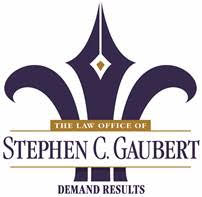
Setting up wills should be at the top of New Year resolutions lists, however this very important document is often an afterthought for many. January is typically when we turn our backs on the past year and focus on our goals for the next. While some New Year resolutions may seem trivial, estate planning goals are not. If you do not have a will, or have not recently reviewed your estate planning documents, make it a New Year’s resolution to get a plan in place before spring arrives.
Top Reasons to Have a Will
Unfortunately, many people believe that you only need a will, trusts or other estate planning documents if you are a billionaire. This is simply not the case. Below, I’ve outlined a few of the top reasons you should have your estate planning needs in order.
- Minor Children: If you have minor children, you will want to designate a guardian, or tutor, for them rather than leaving that decision to a court. Your appointed tutor can also make financial decisions on behalf of your children until they reach the age of majority, or you can appoint a separate trustee to execute that role.
- Trusts for minors: Louisiana law prohibits the distribution of assets directly to minors. If your children are minors at the time of your death, and you die without a will, their inheritance will be under court supervision until each child reaches age 18. If you have a will, a bequest to a child can be held in trust until whatever age you determine, as you get to set the parameters of that trust.
- Tax Planning: While recent tax law changes protect most U.S. residents from federal estate tax liability, a sudden influx of income or an inheritance can push you over the federal threshold, exposing your family to an unexpected federal tax burden.
- Probate: A will can greatly reduce the amount of time and money it takes to probate your estate. A shortened probate process leaves more of your assets to your family.
- Executor: In your will, you choose your executor — the person who will carry out your wishes expressed in your estate plan. Without a will, the administrator may be chosen by the court and may not be a person you like or trust.
- Gifts and Donations: A will can allow you to give donations to your favorite charities and may also let you account for lifetime gifts given to specific family members. For example, if you provided substantial financial assistance to one of your children during your lifetime, you may choose to leave less to that child after your death in order to provide equally for all of your children.
- Avoid Family Disagreements: Many family disputes and lawsuits would be averted if more people had wills. While surviving family members are mourning the loss of a loved one, tempers can flare as questions about money, family heirlooms and valuable assets arise. I always tell my client, when you write your will, your heirs don’t have to like what it says, but they have to respect it. A will allows you to distribute your assets as you wish.
If you do not have a will or have not recently reviewed your will with an estate planning lawyer, consult a reputable attorney now. An attorney knowledgeable about wills, trusts and the probate process can help you set your mind at ease. Writing a will is your one opportunity in life to literally, “write the law.”
I am here to help. Call me at (337) 354-3000 or email me at sgaubert@GaubertLaw.com.









